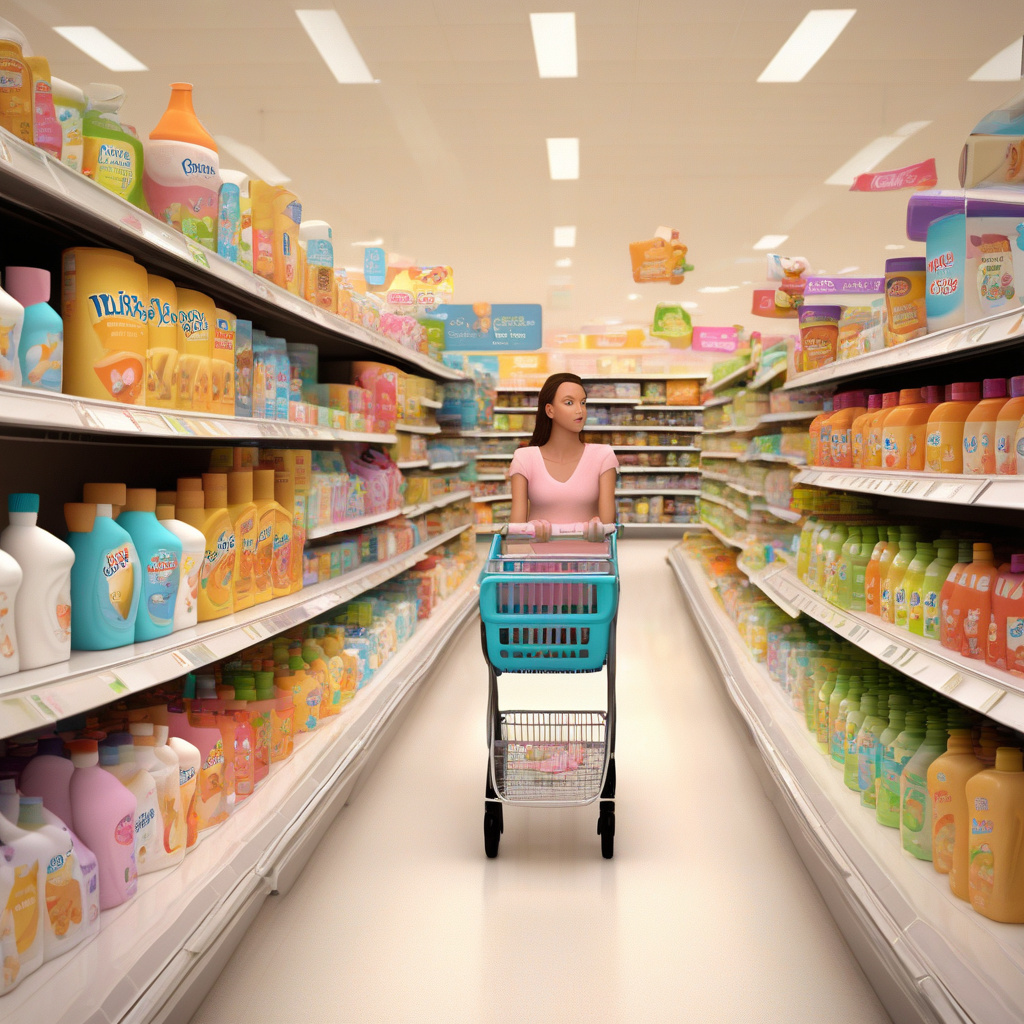Marketplace Briefing: Amazon Shoppers Stockpile Baby Formula and Trade Down to Cheaper Diapers Before Tariffs Raise Prices
As the U.S. economy grapples with the implications of rising tariffs, consumers are reacting with urgency, particularly in the baby care segment. Recent trends indicate that shoppers are flocking to Amazon to stockpile essential items like baby formula while simultaneously trading down to more affordable diaper brands. This behavior reflects a broader shift in consumer priorities, driven by concerns over impending price hikes due to tariffs imposed by the Trump administration.
The urgency behind this shopping surge is palpable. Parents across the country are anxious about potential price increases on baby care products as tariffs on imported goods come into effect. The Trump administration’s tariffs on Chinese products, which include a variety of consumer goods, have raised alarms among families who rely on these products for their infants. As retailers prepare to pass on the increased costs to consumers, many parents are opting to purchase baby formula in bulk. This trend not only provides immediate savings but also offers a buffer against future price increases.
A closer look at the data reveals a significant uptick in online purchases of baby formula on Amazon. According to recent analytics, sales of baby formula have surged by over 25% in the last month alone. Parents are taking advantage of the convenience and often lower prices found on online platforms, making it easier to stock up before prices potentially spike. This move is particularly strategic given that some brands have already announced price hikes due to increased production costs attributed to tariffs.
In addition to stockpiling baby formula, many consumers are also trading down from premium diaper brands to more economical options. Traditionally, brands like Pampers and Huggies have dominated the market. However, as price sensitivity takes precedence, parents are shifting their purchasing behavior towards less expensive alternatives. This trend is evidenced by a notable increase in sales of generic and store-brand diapers, which have seen a rise of nearly 30% in recent weeks. Parents are becoming more resourceful, seeking out promotions and discounts to maximize their savings while still ensuring their babies are well cared for.
The implications of these consumer actions extend beyond immediate purchasing decisions. Retailers and manufacturers are now faced with the challenge of adapting to changing consumer behaviors. Brands that have historically positioned themselves as premium options may need to reconsider their pricing strategies and marketing approaches. As price competition intensifies, companies that can effectively communicate value and affordability will likely fare better in the evolving marketplace.
Moreover, this shift in consumer behavior highlights the growing importance of e-commerce platforms like Amazon. The convenience of online shopping coupled with competitive pricing has solidified Amazon’s position as a go-to destination for many families. With just a few clicks, parents can compare prices, read reviews, and find promotions that best suit their budgets. This accessibility not only enhances the shopping experience but also empowers consumers to make informed decisions.
However, the ramifications of these tariff-driven price increases may also extend to the broader economy. Increased costs for baby care products could lead to a ripple effect, influencing spending patterns in other categories as well. Families may find themselves tightening their budgets, which could slow growth in other sectors. A decline in discretionary spending could prompt retailers to rethink their inventory strategies and marketing tactics, focusing more on value propositions to attract cost-conscious shoppers.
In conclusion, the current landscape for baby care products is a reflection of a more significant trend in consumer behavior. As parents respond to the impending price increases brought on by tariffs, their actions—stockpiling baby formula and trading down to cheaper diaper brands—illustrate a proactive approach to managing household budgets. Retailers must adapt to these changes, embracing e-commerce strategies and competitive pricing to remain relevant in a rapidly shifting market. The next few months will be crucial as families navigate these challenges and as the retail landscape continues to evolve in response to consumer demands.
#BabyCare #RetailTrends #Ecommerce #ConsumerBehavior #TariffsImpact
